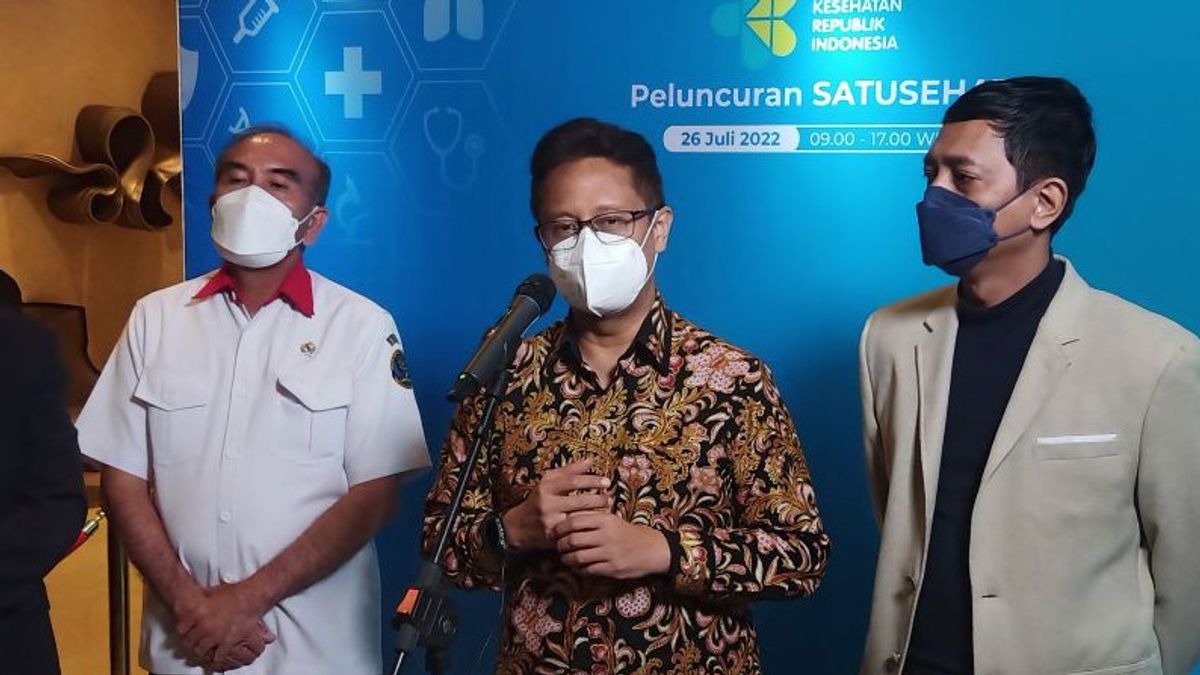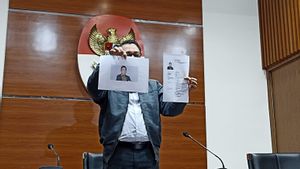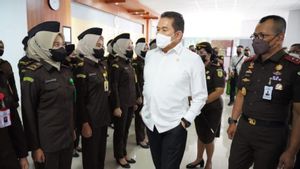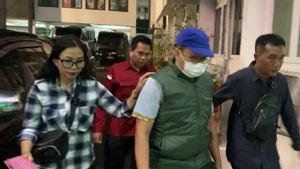JAKARTA - Health Minister Budi Gunadi Sadikin said the monkeypox disease or Monkeypox, which is now spreading in 75 countries, has not yet entered the criteria as a pandemic in the world.
"The monkeypox category is actually still under a pandemic. So it has not yet entered a pandemic. The World Health Organization (WHO) recommends that health protocols need to be maintained, surveillance is still maintained, if possible vaccinations and treatment are prepared," said Budi Gunadi Sadikin after the launch of the platform SatuSehat at the Raffles Hotel Jakarta, reported by ANTARA, Tuesday, July 26.
According to Budi, efforts to track Monkeypox cases domestically are relatively easier when compared to detecting COVID-19 patients.
The reason is that the disease, which now affects about 16,000 patients worldwide, has specific symptoms that can be seen with the naked eye, such as red rashes on the skin of the hands or face, lumps in the groin to lesions or small lumps filled with fluid under the skin's surface.
"So I said, the surveillance is easy, because the symptoms are physical. The bacteriological test is done by PCR, the Ministry of Health already has PCR tools and reagents," he said.
Budi estimates that Indonesia already has sufficient capacity to conduct surveillance of Monkeypox in all provinces this month.
Until now, the Ministry of Health is trying to increase the need for Monkeypox PCR reagents by importing them from China. So that the availability of PCR reagents, which are now available at 500 units in Indonesia, can be increased.
In addition, the Ministry of Health is also trying to supply Monkeypox's drug needs to anticipate the emergence of patients who need medical treatment.
So far, the Ministry of Health has detected nine monkeypox suspects in Indonesia. But after laboratory tests, all of them were declared negative.
Confirmed separately, the Director of Post-Graduate at YARSI University, Prof. Tjandra Yoga Aditama, said that the wider community needed to get a proper explanation about Monkeypox disease.
"Such as the mode of transmission, signs, and symptoms are there to immediately check yourself if there are symptoms and also prevent transmission if there is a suspicion of a case," he said.
BACA JUGA:
In addition, said Tjandra, the public also needs to understand the meaning of the public health emergency that is troubling the world which was declared by WHO on July 13, 2022.
"Of course, everything is explained by means of good risk communication," he said.
Tjandra, who is also an expert in health sciences from the Faculty of Medicine, University of Indonesia (FKUI), said that the ability of epidemiological surveillance in Indonesia must work well, of course with a case detection mechanism.
"Such as the readiness of officers to suspect cases for examination, clear diagnostic criteria, PCR facilities for diagnosis, and a recording system for reporting, analyzing data, disseminating results, and using them for response," he said.
Tjandra also encourages the establishment of a good system to regulate the preparation of resources, facilities, and infrastructure so that if there are cases, they can be handled properly," he said.
The English, Chinese, Japanese, Arabic, and French versions are automatically generated by the AI. So there may still be inaccuracies in translating, please always see Indonesian as our main language. (system supported by DigitalSiber.id)












